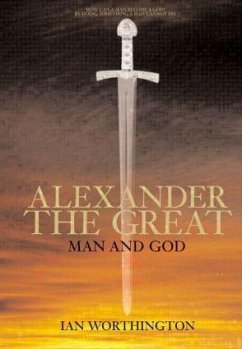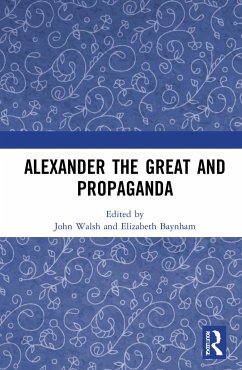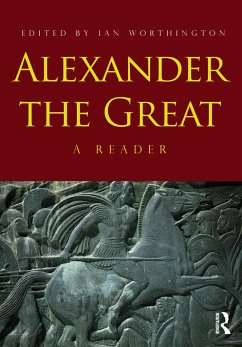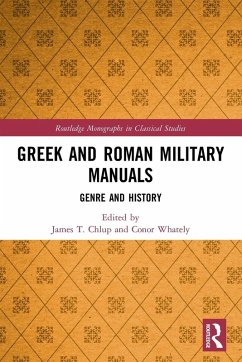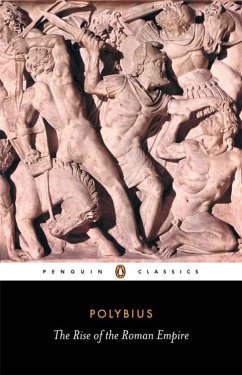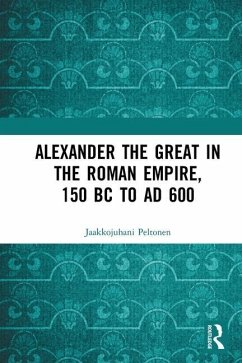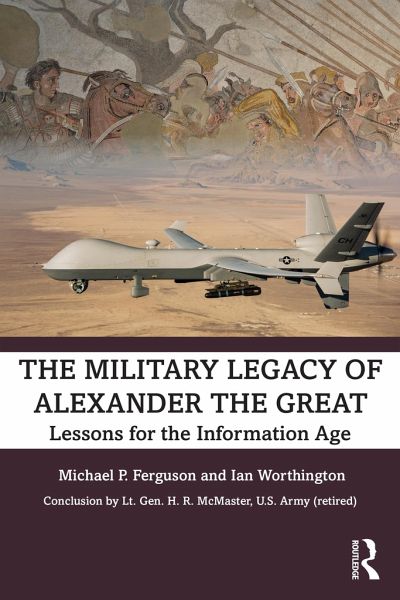
The Military Legacy of Alexander the Great
Lessons for the Information Age
Versandkostenfrei!
Versandfertig in 6-10 Tagen
30,99 €
inkl. MwSt.
Weitere Ausgaben:

PAYBACK Punkte
15 °P sammeln!
Placing Alexander the Great's leadership, command skills, and grand strategy within the context of twenty-first century military challenges, and thus showing continuities in leadership and warfare since his time, this volume demonstrates how and why Alexander is relevant to the modern world by emphasizing the need for human leadership in our digital era.Not only does this volume explore Alexander's rich military history, but also it provides a robust exploration of the twenty-first century security environment. Theorists and policy-makers will gain insight into how Alexander's story informs ou...
Placing Alexander the Great's leadership, command skills, and grand strategy within the context of twenty-first century military challenges, and thus showing continuities in leadership and warfare since his time, this volume demonstrates how and why Alexander is relevant to the modern world by emphasizing the need for human leadership in our digital era.
Not only does this volume explore Alexander's rich military history, but also it provides a robust exploration of the twenty-first century security environment. Theorists and policy-makers will gain insight into how Alexander's story informs our thinking about peace, war, and strategy, while practitioners and educators will encounter ways to improve their approaches to leader development and building curricula. Ferguson and Worthington set forth these lessons in a thematic framework that organises Alexander's reign into distinct parts, together with chapters discussing the lessons and warnings he brings to the modern world. Twenty-fifth National Security Advisor to the President of the United States, Lt. Gen. H. R. McMaster, provides a thoughtful conclusion to this fascinating volume. Alexander's timeless campaigns remain as germane to this age as any other and demonstrate the critical importance of dynamic leadership and historical studies in an era increasingly dominated by the culture of technology.
The Military Legacy of Alexander the Great is expertly written for students and scholars in a variety of disciplines, including Classics, Ancient History, Modern History, Peace Studies, and Military Studies. It is also of great interest to senior defence leaders, military academies, leadership- and management-focused academic programmes, intelligence organizations, and senior service colleges. The volume is also suitable for the general reader interested in warfare, military history, and history more broadly.
Not only does this volume explore Alexander's rich military history, but also it provides a robust exploration of the twenty-first century security environment. Theorists and policy-makers will gain insight into how Alexander's story informs our thinking about peace, war, and strategy, while practitioners and educators will encounter ways to improve their approaches to leader development and building curricula. Ferguson and Worthington set forth these lessons in a thematic framework that organises Alexander's reign into distinct parts, together with chapters discussing the lessons and warnings he brings to the modern world. Twenty-fifth National Security Advisor to the President of the United States, Lt. Gen. H. R. McMaster, provides a thoughtful conclusion to this fascinating volume. Alexander's timeless campaigns remain as germane to this age as any other and demonstrate the critical importance of dynamic leadership and historical studies in an era increasingly dominated by the culture of technology.
The Military Legacy of Alexander the Great is expertly written for students and scholars in a variety of disciplines, including Classics, Ancient History, Modern History, Peace Studies, and Military Studies. It is also of great interest to senior defence leaders, military academies, leadership- and management-focused academic programmes, intelligence organizations, and senior service colleges. The volume is also suitable for the general reader interested in warfare, military history, and history more broadly.






